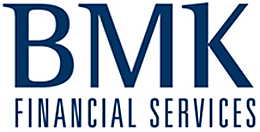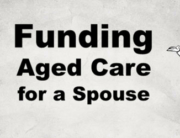Now that people are living longer, the cost of staying hale and hearty is rising at the same time that governments are trying to claw back spending on medical care. But good opportunities remain to make sound investments in health care sectors at home and abroad.
In Australia and around the world, healthcare funding is being scrutinised by governments concerned about the big slice of gross domestic product (GDP) being gobbled up by subsidized health carei,ii,iii,iv,v.
Australia’s annual health spending of about $US7600 a person, or 11.3 per cent of GDPvi, is well above the developed world’s average of 9.3 per cent and was marked for particular concern in the latest Federal Budgetvii.
But it is the United States that tops the league in terms of per capita cost ($US8745) and share of GDP (16.9 per cent), according to OECD statistics.viii And the embryonic “Obamacare” legislation that was to deliver more affordable health to Americans by insisting on private cover has perversely boosted government spending as newly insured citizens flock to clinics.ix
Our global reach
As the biggest market on the planet, the US will continue to remain in focus for companies whose medical services and pharmaceuticals are taxpayer subsidised.
These companies include several listed on the Australian Securities Exchange (ASX) – such as vaccine and plasma specialist CSL and hearing implant pioneer Cochlear. Which just goes to show that healthcare delivery has become a global business, no matter where a provider or its investors are based.
Hospital group Ramsay Health Care is another Aussie business whose shareholders are benefitting from a growing footprint in countries such as the United Kingdom and France.
The examples provided above are illustrative only and do not constitute investment recommendations.
But the highest earners from overseas markets are the pharmaceutical drug makers. In fact, they are Australia’s biggest exporters of manufactured products, selling more than $A4 billion of medicines a year outside the nation.x
Developing growth market
First-world economies offer the most lucrative opportunities today, but developing nations, such as India where a mere 1.4 per cent of GDP is spent on health carexi, are seen as tomorrow’s growth engines.
In fact, investing in health sector companies that service developing nations is becoming more compelling as momentum grows to make medicine more accessible to vast populations living in poverty.xii
As a result, pharmaceutical companies that make childhood vaccines and drugs to treat infectious or insect-borne diseases have potential deep markets in the developing world, where millions die each year from illnesses such as malaria, influenza, AIDS and diarrhoea.
Economists forecast that sales of pharmaceuticals will rise 10 per cent in 2014 in the Asia Pacific compared to an increase of around 2 per cent in Western Europe and a slight decrease in North America.xiii
First world diseases
Markets to treat chronic diseases in the developed world are also expanding because of poor lifestyle and diet choices that have led to increased rates of stroke, diabetes and lung cancer.xiv
While the advances in drugs to treat conditions such as heart disease have helped people live longer, they have not come with a guarantee of good health.
In fact, crippling age-related illnesses such as arthritis and Alzheimer’s disease are on the rise thanks to longevity, delivering drug developers another significant opportunity to profit.
High-tech takings
Also set to make gains are medical device makers and biotechnology companies that can provide the cost-efficiencies budgets strive for.
With prevention increasingly seen as better than a cure, manufacturers of monitors and diagnostic tools that help track well-being are finding favour with governments keen to fund research that will yield savings through avoided expenditure.xv
Attracting attention, too, are biotechnology companies. Some of the most promising are developing therapies based on genes and stem cells that have the potential to target disease more accurately than the synthesised pharmaceuticals now used as a standard. Known as biologic drugs, they are being touted as treatments customised for individuals that will likely save funds now wasted on less-effective, broad-spectrum remedies.xvi
The rapidly changing face of health care is ripe with opportunity for investors. As the graph above shows, returns from global health care stocks have convincingly outperformed the overall market in recent years.
However, there are many potential risks that investors need to take into account. Volatile markets, scientific disappointments and fickle funding policies can create challenges in this high-stakes sector.xvii
On the other hand, uncertainties and risks can be managed without stifling gains through the prudent selection of products that provide considered exposure. For most people, the best way to gain exposure to the potential wealth in health with a level of diversification to reduce the risks is via a professionally managed fund with a health industry focus.
i. Federal Budget 2014: Joe Hockey hurts his way into history. Sydney Morning Herald. Mark Kenny. May 13, 2014.
ii. Major brake in health spending growth as governments cut budgets in the crisis. OECD. November 21, 2013.
iii. India cuts healthcare spending by 10% in 2014–15 government budget. IHS Analytics. February 18, 2014.
iv. Obamacare cost-cutting explained. CNBC. Dan Mangan. October 1, 2013.
v. UK faces ‘crippling’ tax rises and spending cuts to fund pensions and healthcare. The Telegraph. Szu Ping Chan. March 13, 2014.
vi. 2014 Global health care outlook. Deloitte. Page 18.
vii. Rundown Of The Vast Health And Education Cuts In The Federal Budget. Business Insider. Simon Thomsen. May 13 2014,
viii. OECD-Health-Statistics-2013-Frequently-Requested-Data.xls
ix. Large Healthcare Cost Increases Built into Obamacare. Forbes. May 28, 2014.
x. Peak industry association Medicines Australia.
xi. Budget 2014: Will universal healthcare be on the radar for Arun Jaitley? DNA India. July 10, 2014.
xii. Research for universal health coverage: World health report 2013. World Health Organisation.
xiii. Industries in 2014 – A special report from The Economist Intelligence Unit. Bar chart, Page 27.
xiv. Australian Government Department of Health.
xv. NSW Medical Devices Fund 2014-15.
xvi. Boost for cancer genome treatment and research. Sydney Morning Herald, Amy Corderoy, June 17, 2014.
xvii. 2014 Global health sector outlook/Shared Challenges, Shared Opportunities.








